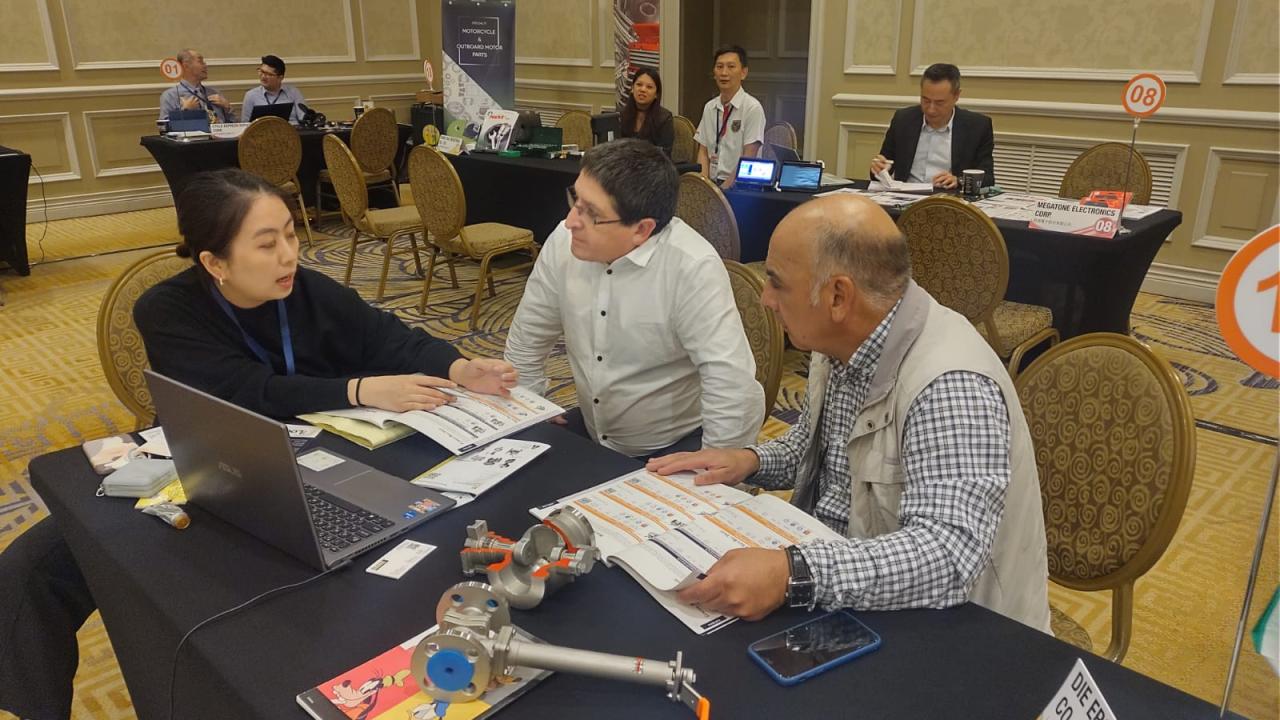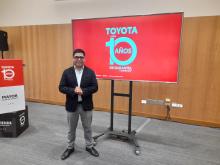
Brazil, Argentina, Paraguay and Chile were targeted by machinery, textile, cybersecurity and food companies from Taipei.
A business conference involving 25 Taiwanese firms in four South American nations ended on Thursday. With an offer from different industries, the event began on April 6 in Brazil and sought to offer Taiwanese and Latin American entrepreneurs the opportunity to explore business niches and mutually beneficial cooperation possibilities.
In the case of Chile, the last country in the round, the meeting with Chilean businessmen was organized by the Taipei Economic and Cultural Office in Chile (TECO) and the foreign trade development council (TAITRA).
The delegation included electronic and technological equipment and components, spare parts for automobiles and motorcycles, tools, machinery, food and beverages, textiles and medical devices.
“I think it's a good start. Because you always have to start somewhere. Now they [companies and potential buyers] can continue to deepen the relationship. So far, when we interview our delegation members, they are very satisfied with this mission, because it is their first attempt in Chile and in some cases Latin America. So they have met their expectations, and for some they have even exceeded them,” Andrea Wu, manager for the Americas of TAITRA, explains to AmericaEconomía.
The island's numbers are still small in the region.
According to figures from the National Customs Service of Chile, during the year 2023 the trade volume between both countries reached US$ 1,490 million, of which US$ 1,262 million corresponded to Chilean exports to Taiwan and US$ 228 million to imports that made Chile from Taiwan.
Further back is the exchange with Argentina which, according to figures from the National Institute of Statistics and Censuses of Argentina (Indec), reached US$ 980 million in 2022, with the country of Milei sending corn, garlic, leather and its manufactures, cheese , shrimp, fish meal, wine and peanuts.
And, until now, TAITRA recognizes that it is not so easy to export from Taiwan to South America, since each country has different taxes and regulations for Taiwanese products.
“I would say that it is quite difficult to enter [the South American market], even for the members of the delegation. It is also one of the reasons why they would like to start these missions, because they need to be in the market in person so they can understand what kind of problems they are going to face before entering the market.”
The distance between the American continent and the island of Taiwan is another factor since, although there are two important Taiwanese shipping lines, Evergreen and Wanghai, ships must first go to Manzanillo, in Mexico before going down to South America. And if they go to the Atlantic coast, it is necessary to cross the Panama Canal.
COMPUTER SECURITY AND VEGAN MEAT
Rita Lee is a Taiwanese businesswoman who has celebrity status in her country, due to her vegan products and posts on Instagram. He was on the trade mission promoting his vegan beef jerky (what Chileans call charqui or dried meat), made from mushrooms.
“In Brazil, people are friendly. In Paraguay they are more closed. In Argentina, people are a little sadder, due to the economic issue. Chile is very active, we have had more than 10 offers to market our vegan line. We are still studying whether to market to everyone or only choose an authorized distributor,” Lee tells AméricaEconomía .
Cheng-I Lin, meanwhile, is the CEO and president of Keypasco , a digital technologies company focused on cybersecurity and multi-step authentication systems.
“We are now targeting the B2B2C business. We have 11 banks in Taiwan using our solution, with more than 10 million active users using our solution in mobile banking, web banking, third-party payment system, and also ATM machines every day. When you want to replace money, you don't need to carry any type of credit card and you can use your mobile phone to perform money replacement. We also offer services for internal employee use, and our solution can offer our services to integrate our services with that type of software and hardware ,” details Lin.
With 37 years of experience in tokenization and banking, they will seek to make their way into the world of payments in Chile and are looking for a local partner to help them promote their Keypasco solution.
Very attentive to this, local businessman Rodrigo González, the creator of Fit IT, a Chilean technology company, is seriously thinking about doing business with the IT security and authentication provider.
“They don't have clients here in Chile. They do not have clients in South America. And somehow I understood that they come here more than to sell, to look for representatives. So our technology company here in Chile can help you,” says González.
Meanwhile, Saúl Carrasco, manager of Rocanor, a Chilean firm that is dedicated to the transportation of chemical products, has been looking to expand its suppliers of stainless steel valves with the Taiwanese firm Die Erste Industry.
“It is a viable alternative, because they are already known in Chile. Although they have a local representative, we could still reach agreements,” the industrialist ventures.
He is not worried about tariffs and final prices, since the firm also has a factory in China and, in that case, the preferential tariff derived from the FTA with Chile could favor it.
“We already said that we were going to send you some valves that interest us. And we are going to see the price and we are going to move forward,” says Carrasco.
The delegation and the local embassy trust that this meeting will provide a significant boost to bilateral trade relations and create new opportunities for growth and development for both parties.
“We hope to take a delegation of Chilean businessmen to Taiwan as well, to deepen their knowledge of local factories. And we will bring another mission from Taipei to Chile probably next September. There is a lot of room to collaborate,” Elena Yang, director of the economic division of the Taiwan Embassy, explained to AméricaEconomía.










